Physics

Educators and Parents, Sign Up for The Cheat Sheet
Weekly updates to help you use Science News Explores in the learning environment
Thank you for signing up!
There was a problem signing you up.
-
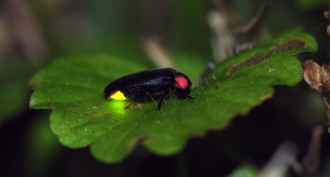 Animals
AnimalsCool Jobs: A world aglow
Three scientists probe how the natural world makes light, in hopes of using this information to design new and better products.
-
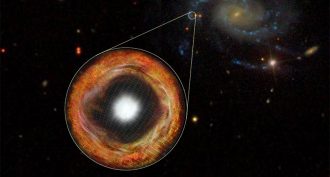 Physics
PhysicsStar caught passing gas before exploding
Stars can become unstable as they near death, a new study suggests. Some may even spew gas for a year or so before they explode.
-
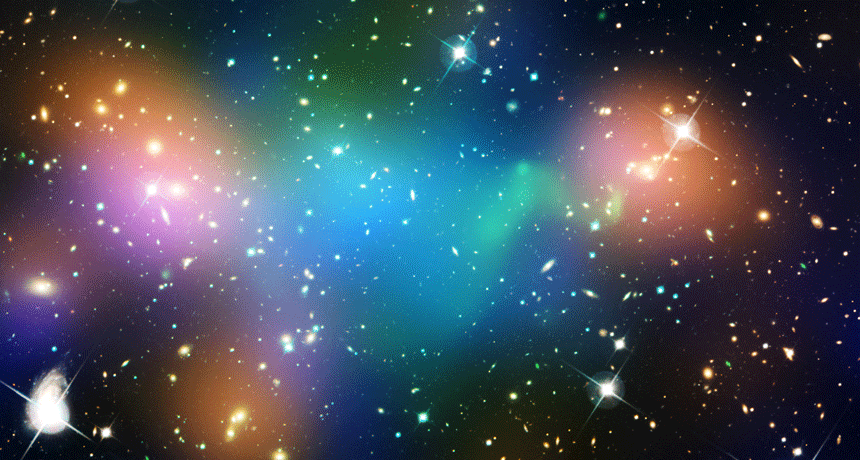 Physics
PhysicsScientists Say: Dark matter
Most of the universe isn’t made of stuff we can see. Scientists think some of it might be made of dark matter — matter that emits no radiation.
-
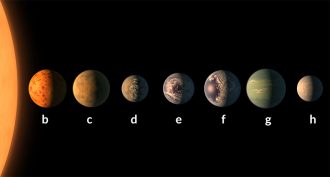 Planets
PlanetsNew solar system found to have 7 Earth-size planets
A neighboring star system hosts seven Earth-like planets. Especially surprising: Three of those planets appear to reside in a zone that could support life as we know it.
-
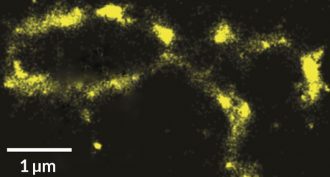 Genetics
GeneticsHow to view tiny parts of DNA? Make them ‘blink’
A new technique can image nanoscale structures in cells without hurting them. No dyes needed. All you have to do is stimulate them with the right color of light.
-
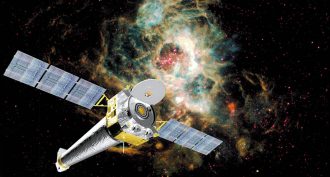 Physics
PhysicsStrange X-rays point to possible ‘dark’ matter
Scientists have been looking for “dark” matter. It’s supposed to make up most of the universe — but it’s also invisible. X-rays may now point to where some of this weird stuff is.
-
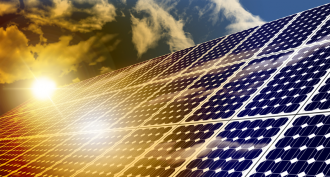 Physics
PhysicsHow to chill an object by sending its heat into space
Researchers have designed a device that can cool an object by radiating its energy into outer space. Think of it as a solar panel in reverse.
By Sid Perkins -
 Plants
PlantsWarm petals may attract chilly bees
Dark-purple violet petals are warmer than a light-purple variant. And and that warmth might explain their attraction to potentially chilly bees.
-
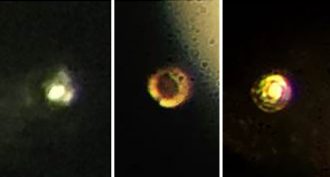 Chemistry
ChemistryScientists claim to have turned hydrogen into a metal
Most people know hydrogen as a gas. But under high pressure, scientists now think they’ve converted it into a reflective metal. Not everyone is convinced.
-
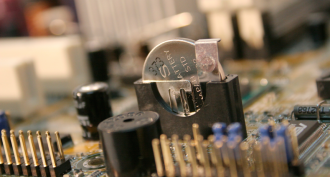 Physics
PhysicsExplainer: How batteries and capacitors differ
Both batteries and capacitors can power electronic devices. Each, however, has different properties which may provide benefits — or limitations.
By Sid Perkins -
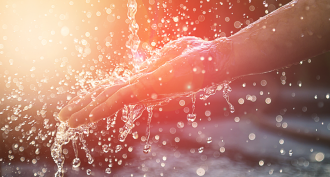 Computing
ComputingLEDs offer new way to kill germs in water
Growing ultraviolet-light-emitting diodes on thin, flexible sheets of metal holds promise for water disinfection and other applications.
By Sid Perkins -
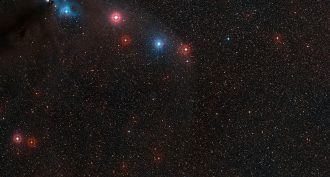 Physics
PhysicsWeird physics warps nearby star’s light
Scientists have observed a bizarre effect of quantum physics in light coming from a nearby neutron star.